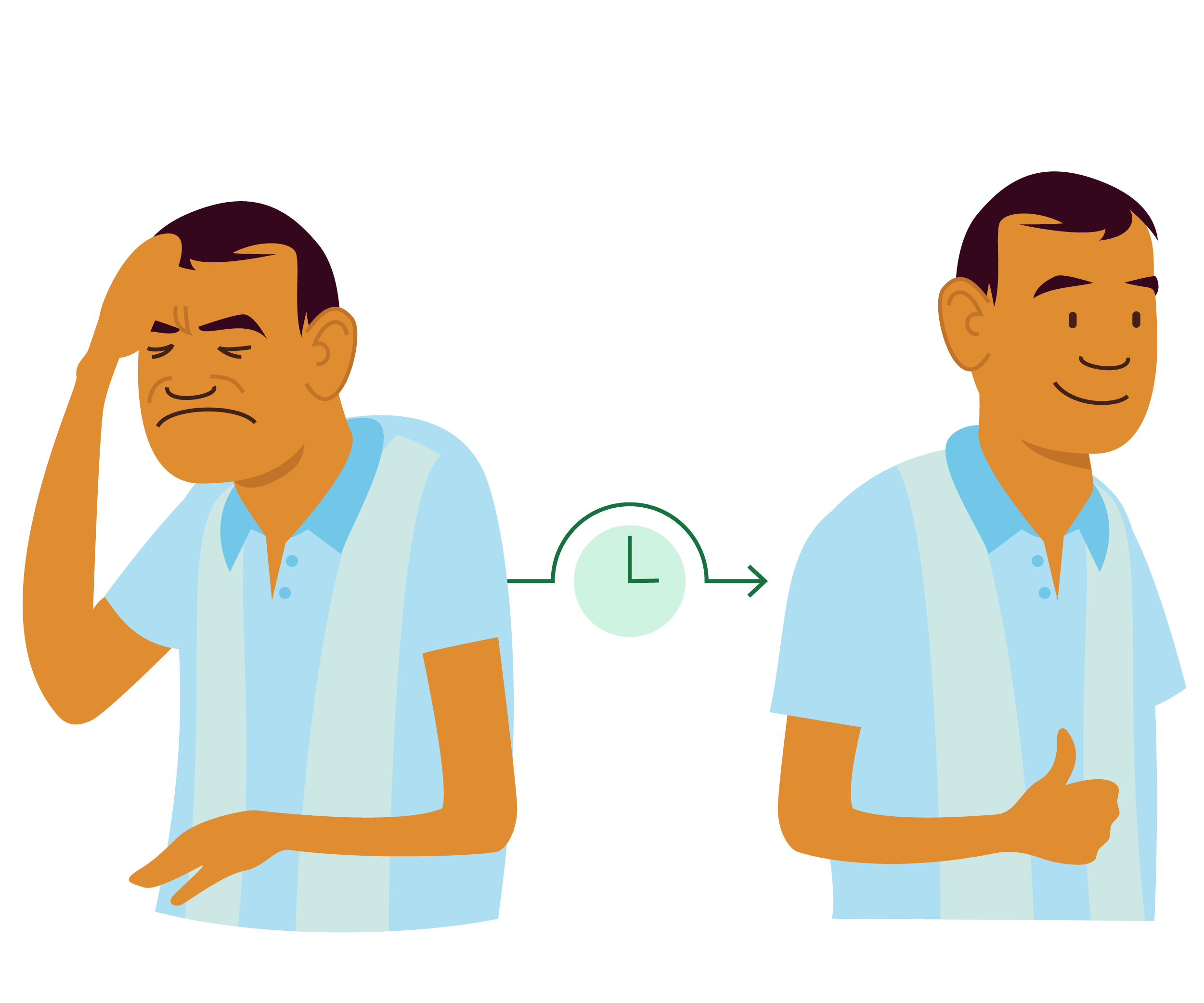 Don’t assume personal experiences alone are enough.
Don’t assume personal experiences alone are enough.
Most health conditions change over time. Even if someone’s health got better or worse after doing something, it does not necessarily mean that what they did made them better or worse. It also does not mean that another person doing the same thing will get better or worse.
Explanation
People often believe that someone’s health improved or got worse because they did something (took a health action). In fact, it is impossible to know what would have happened if they had not taken the health action. Most health conditions change over time anyway, regardless of what they do. People may also believe that the same health action will have the same effect in another person, but this is not always the case.
In research, types of studies called case reports (the experience of an individual) and case series (reports of several individuals) may suggest benefits or harms of health actions. However, they are not fair comparisons and do not provide a reliable basis for concluding that a health action helps or is safe, and they can be misleading.
Example
A type of headache called tension headache is very common. Researchers found that in adults who have frequent headaches, about 5%, 20%, and 44% are likely to be pain-free within one, two, and four hours respectively without taking a pain killer called paracetamol (or acetaminophen). So, if a person with frequent tension headaches took paracetamol and the headache went away, it would not be possible for that individual to know whether it was because of the medicine or if it would have gone away just as quickly without the medicine.

Remember: Someone’s personal experience of getting better or worse after doing something for their health (a health action) does not necessarily mean that the health action made them better or worse.
Primary school
- Lesson 2. Claims based on someone’s personal experience using a treatment. In: The Health Choices Book.
- Animation: Personal experiences – The Health Choices Book.
Secondary school
- Lesson 3. Unreliable claims. In: Be smart about your health.
Other
- Podcast: Ep. 3 of The Health Choices Programme: “Personal experiences”
- Podcast: Episode 5: Personal Experiences. Parents Making Informed Health Choices.
- Book: The weakness of one This is a chapter in Smart Health Choices: Making Sense of Health Advice.
- Video: The disturbing truth about vitamin supplements – sharp science This is a Mashable video lasting 5:11 minutes.
- Video: Does stretching reduce muscle soreness? This is a PictureFit video lasting 3:19 minutes.
- Video: The science of anti-vaccination This is a SciShow video lasting 9:15 minutes.
- Video: Regression to the Mean This is a Veritasium video lasting 7:37 minutes.
- Blog: Anecdotes are unreliable evidence This is a Students 4 Best Evidence blog.
